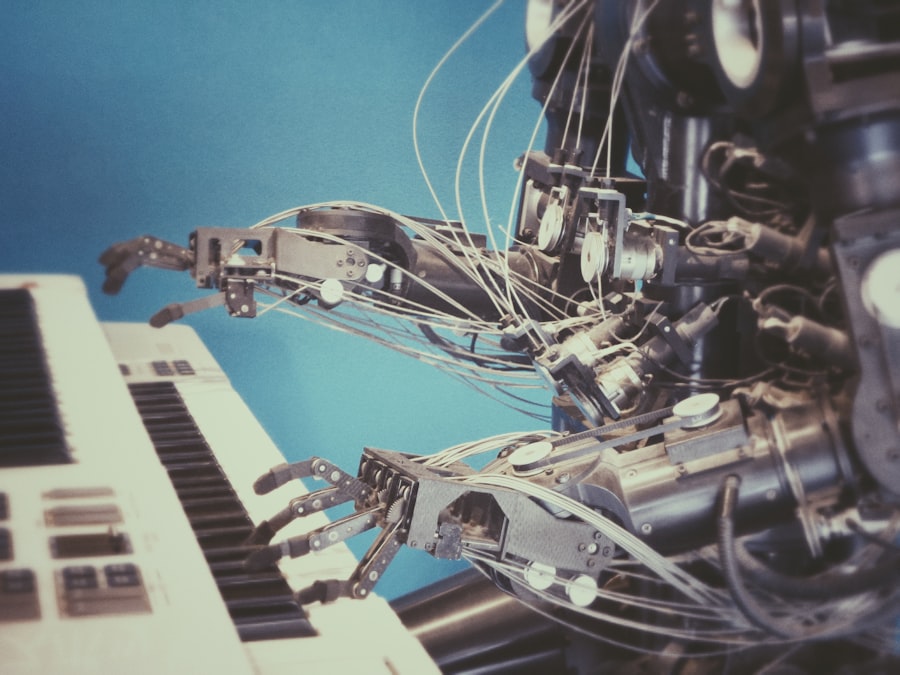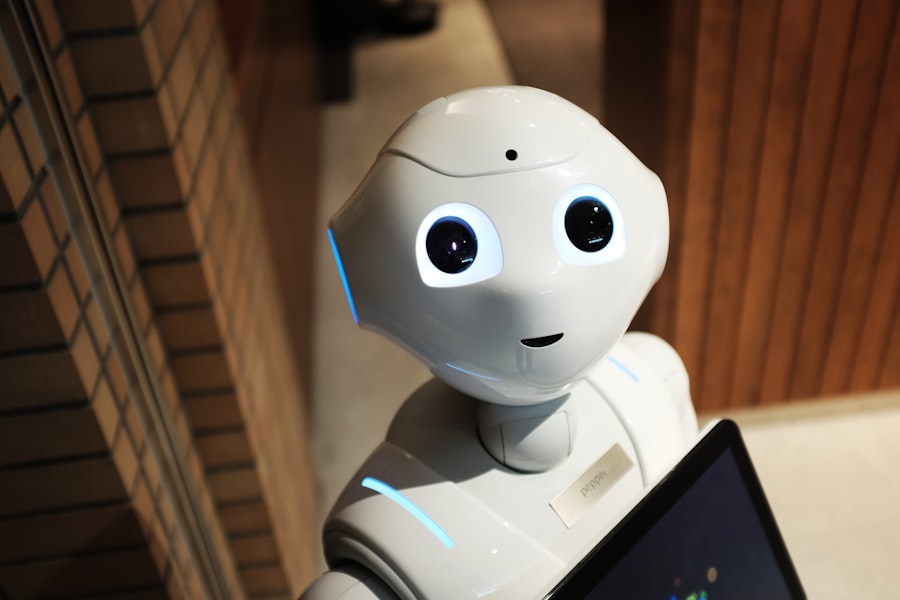Artificial Intelligence (AI) has become a fundamental component of modern workplaces, transforming business operations and the nature of work. AI involves the development of computer systems capable of performing tasks that typically require human intelligence, such as learning, reasoning, and problem-solving. Recent advancements in AI technology have enabled machines to execute complex tasks more efficiently, leading to increased automation, improved productivity, and the creation of new opportunities across various industries.
The impact of AI on the workplace continues to grow as the technology evolves. AI applications are being integrated into numerous aspects of business operations, including customer service (chatbots and virtual assistants), data analysis (predictive analytics), and process optimization (robotic process automation). This integration has resulted in a shift in the skills and competencies required in the workforce, as well as the emergence of new career paths related to AI development and implementation.
As AI technology becomes more advanced and widespread, it is crucial for professionals to understand its implications for their careers and adapt to the changing work environment. This may involve acquiring new skills, embracing AI-assisted tools, and staying informed about emerging trends in AI and its applications in various industries.
Key Takeaways
- AI is increasingly playing a significant role in the workplace, impacting traditional career paths and creating new opportunities.
- Traditional careers are evolving due to AI, with some roles being automated while others require new skills and knowledge to remain relevant.
- New career opportunities are emerging from AI, such as data scientists, AI ethicists, and automation specialists, creating a demand for upskilling and reskilling.
- Upskilling and reskilling are crucial in the age of AI to adapt to changing job requirements and remain competitive in the workforce.
- The ethical and social implications of AI in the workplace, including job displacement and privacy concerns, need to be carefully considered and addressed.
The Changing Landscape of Traditional Careers Due to AI
Changes in Blue-Collar Industries
Similarly, in manufacturing, AI-driven automation has led to a decline in jobs that involve manual labor, while creating opportunities for individuals with skills in robotics and machine learning.
The Shift in White-Collar Professions
Furthermore, AI has also impacted white-collar professions such as law and medicine. Legal research and document review, which were once time-consuming tasks performed by junior lawyers, can now be automated using AI-powered software. In the medical field, AI is being used for diagnostic imaging and personalized medicine, changing the role of healthcare professionals and creating new career paths in health informatics and bioinformatics.
The Need for Adaptation
As a result, individuals in traditional careers are facing the need to adapt their skills and knowledge to remain relevant in the age of AI.
New Career Opportunities Arising from AI

While AI has disrupted traditional career paths, it has also created new opportunities for individuals with the right skills and expertise. The demand for AI specialists, data scientists, machine learning engineers, and robotics engineers has surged in recent years, as businesses seek to leverage AI technologies to gain a competitive edge. These roles require a deep understanding of algorithms, programming languages, and data analysis, as well as the ability to develop and implement AI solutions that drive business outcomes.
In addition to technical roles, there is also a growing demand for professionals who can bridge the gap between AI technology and business strategy. AI product managers, AI ethicists, and AI implementation consultants are becoming increasingly important in helping organizations navigate the complexities of integrating AI into their operations while addressing ethical and social implications. Furthermore, as AI continues to transform industries, there is a need for individuals with interdisciplinary skills who can apply AI to diverse fields such as marketing, customer experience, and supply chain management.
The Importance of Upskilling and Reskilling in the Age of AI
| Metrics | Statistics |
|---|---|
| Percentage of jobs at risk of automation | 47% |
| Percentage of workers who need reskilling by 2025 | 54% |
| Percentage of employers investing in upskilling programs | 84% |
| Impact of upskilling on employee retention | 70% |
As AI reshapes the job market, upskilling and reskilling have become essential for individuals looking to thrive in their careers. Upskilling involves acquiring new skills or enhancing existing ones to keep pace with technological advancements, while reskilling involves learning entirely new skills to transition into a different role or industry. In the age of AI, continuous learning is crucial for staying relevant and competitive in the workforce.
For individuals in traditional careers that are being impacted by AI, upskilling or reskilling may be necessary to transition into emerging roles that are in high demand. This could involve learning programming languages such as Python or R, gaining proficiency in data analysis and machine learning techniques, or obtaining certifications in AI-related fields. Many organizations are also investing in upskilling their workforce by providing training programs and resources to help employees develop the skills needed to work alongside AI technologies.
Ethical and Social Implications of AI in the Workplace
While AI presents numerous benefits in the workplace, it also raises ethical and social concerns that need to be addressed. One of the primary ethical considerations is the potential for bias in AI algorithms, which can perpetuate discrimination and inequality if not properly managed. For example, AI-powered recruitment tools have been found to exhibit bias against certain demographic groups, leading to concerns about fairness in hiring practices.
Additionally, the use of AI for surveillance and monitoring in the workplace raises privacy concerns for employees. Furthermore, the widespread adoption of AI technologies has implications for job displacement and income inequality. As automation replaces certain tasks and roles, there is a risk of job loss for individuals in low-skilled or routine-based jobs.
This can exacerbate socioeconomic disparities if not accompanied by efforts to retrain and support affected workers. Additionally, there are concerns about the impact of AI on mental health and well-being, as constant connectivity and reliance on technology can lead to burnout and disengagement.
The Role of AI in Remote Work and Flexible Work Arrangements

Facilitating Seamless Communication and Collaboration
AI has played a significant role in enabling remote work and flexible work arrangements, particularly in response to the COVID-19 pandemic. Virtual collaboration tools powered by AI have facilitated seamless communication and project management for remote teams, allowing employees to work from anywhere while staying connected with their colleagues.
Accommodating Flexible Work Hours and Preferences
AI-driven scheduling software has also made it easier for organizations to accommodate flexible work hours and remote work preferences.
Monitoring Employee Well-being and Engagement
Moreover, AI technologies such as natural language processing and sentiment analysis have been used to monitor employee well-being and engagement in remote work settings. By analyzing communication patterns and sentiment in digital interactions, organizations can gain insights into employee satisfaction and identify areas for improvement in remote work practices.
As remote work becomes more prevalent, AI will continue to play a crucial role in supporting virtual collaboration and maintaining productivity across distributed teams.
Strategies for Navigating and Thriving in AI-Driven Career Paths
To navigate and thrive in AI-driven career paths, individuals need to adopt a proactive approach to skill development and career planning. Continuous learning is essential for staying abreast of technological advancements and industry trends. This could involve pursuing advanced degrees or certifications in AI-related fields, participating in online courses and workshops, or engaging in hands-on projects to gain practical experience with AI tools and techniques.
Networking with professionals in the AI industry can also provide valuable insights and opportunities for career advancement. Joining professional associations, attending industry events, and connecting with mentors can help individuals stay informed about job opportunities and emerging trends in the field. Additionally, cultivating a growth mindset and adaptability is crucial for embracing change and seizing new opportunities that arise from the integration of AI technologies.
In conclusion, the growing role of AI in the workplace is reshaping traditional careers while creating new opportunities for individuals with the right skills and expertise. As AI continues to evolve, it is imperative for individuals to prioritize upskilling and reskilling to remain competitive in the job market. Furthermore, ethical considerations surrounding AI adoption must be addressed to ensure fair and equitable practices in the workplace.
By embracing continuous learning and staying attuned to industry developments, individuals can navigate the complexities of AI-driven career paths and position themselves for success in the age of AI.
If you’re interested in learning more about how to avoid common job search mistakes, check out this article on Careers Help. It provides valuable insights into the pitfalls to watch out for when looking for a new job.
FAQs
What is AI?
AI, or artificial intelligence, refers to the simulation of human intelligence in machines that are programmed to think and act like humans. This includes tasks such as learning, problem-solving, and decision-making.
How is AI used in future careers?
AI is expected to play a significant role in future careers by automating repetitive tasks, analyzing large amounts of data, and making predictions and recommendations. It is also expected to create new job opportunities in fields such as data science, machine learning, and AI ethics.
What are some examples of AI in future careers?
Some examples of AI in future careers include virtual assistants, autonomous vehicles, medical diagnosis and treatment, financial analysis, and personalized learning platforms.
What skills are important for future careers in AI?
Skills such as programming, data analysis, machine learning, and critical thinking will be important for future careers in AI. Additionally, skills in ethics and human-centered design will be crucial as AI becomes more integrated into various industries.
What are the potential challenges of AI in future careers?
Some potential challenges of AI in future careers include job displacement due to automation, ethical considerations surrounding AI use, and the need for continuous learning and upskilling to keep up with technological advancements.



